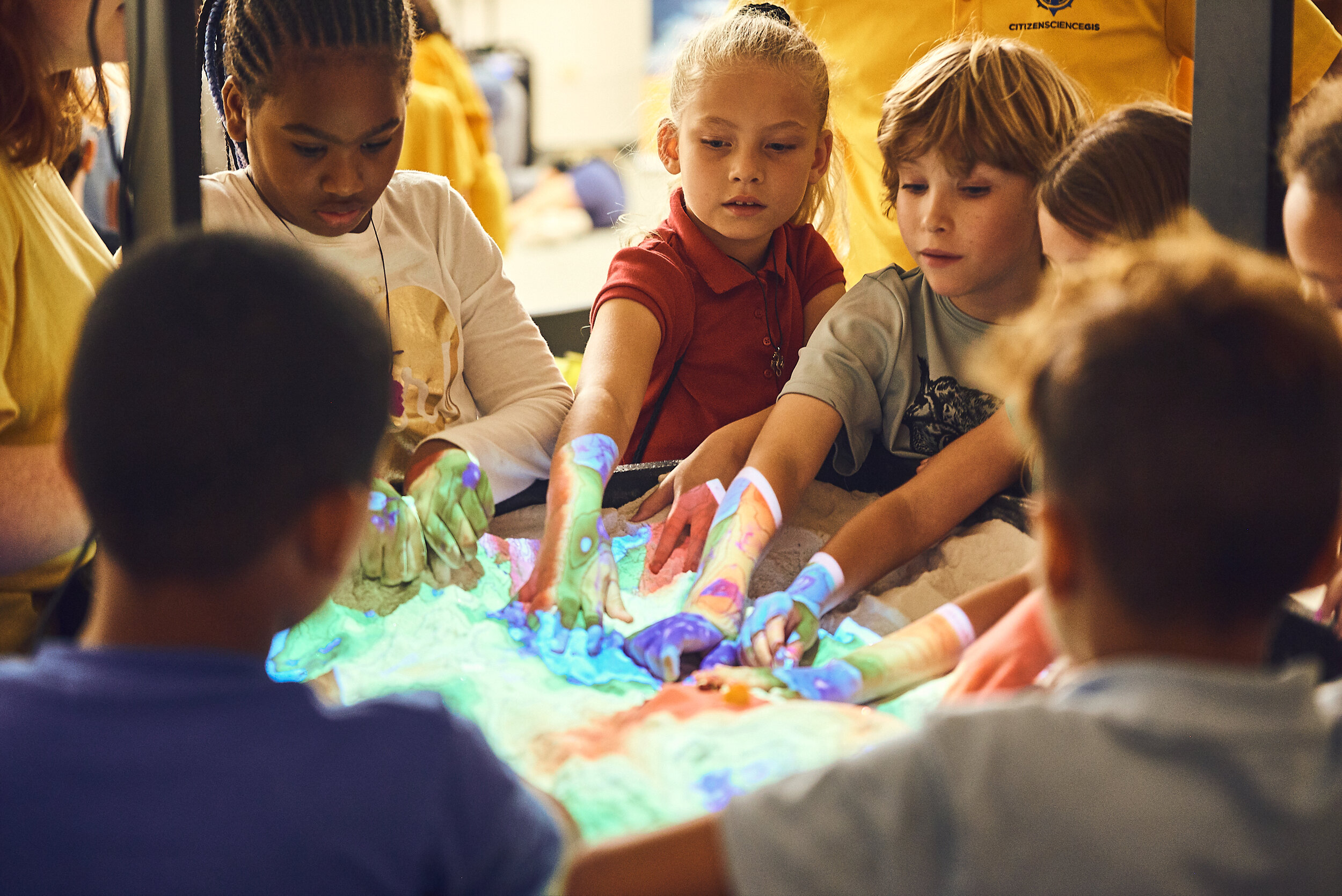Why Youth Matter to Science’s Future.
We are often asked why - as academic researchers - we are so focused on working with youth. The answer is simple. It is our responsibility to inspire science’s next generation. One positive learning moment shared between a young child and a college student or faculty member could be the difference a child needs to believe in himself or herself. And it could be the moment where a child believes in science as a place where that can child can one day thrive. Science is about people, you’ve heard that line from us before, but let’s take that one strep further: science’s future is about young people. And that future is stronger when academics work with K-12 schools to support new avenues for engagement, exploration, and wonder.
That’s why since 2017 our Maps, Apps, and Drones Tour has already delivered science learning opportunities to over 10,000 children across Florida and in Belize. And that’s why we’re going even bigger with the launch of the nation’s first GeoBus during Geography Awareness next month. We want youth to engage in hands-on geospatial technology experiences. We want them to tell their families about how these exciting, scientific tools can lead to incredible careers in several sectors. And most importantly, we want our college student team, faculty mentors and industry partners to work with youth to show that they can succeed in science, and they have a seat at the table.
As we continue to expand our Citizen Science GIS youth efforts with the launch of GeoBus this year, we are excited to re-affirm our commitment to science’s next generation. GeoBus is a 40 foot repurposed city bus powered by the sun thanks to our partners at 15lightyears. GeoBus has been converted into a mobile citizen science laboratory focused on maps, apps, and drones that visits all K-12 schools in Florida. It’s launching on November 17, and it will be built by ideas generated from youth, teachers, and our team working together to create an innovative and first-of-its-kind learning experience. Take a quick 90 second sneak peak of GeoBus below and share with your pals.
As we grow, we hope others will grow along with us. We encourage all academics to think about the ways in which their work can better engage in outreach and education efforts with K-12 school children, teachers, home schoolers, and families. It’s our responsibility to cultivate science’s next generation and help ensure science is accessible to all.
With that in mind, we have five pieces of advice for working with youth to inspire science’s next generation:
Be Kind. It sounds simple enough. Children are full of energy, ideas, and possibilities. Our job as adults working with them is to create a warm, safe, creative, and welcoming environment where children can develop these traits even more. Smiles and encouragement go a long way.
Be Team-Focused. Partnerships make science work. The greatest discoveries are often made by teams of people from diverse backgrounds with different ideas. One of our jobs in working with children is to cultivate collaborative spaces where students can experience the joys of shared successes and growth from unexpected challenges.
Be Supportive of Failure. Maybe we crashed a mini-drone into a wall. Maybe we added a data point in the wrong location. Maybe we dropped our tablet while collecting data in the field. These mistakes are teachable moments. Don’t punish a student for these minor mistakes, instead help them learn from these teachable moments.
Be Encouraging. Ask a child what he or she loves about science, about life, about school, about their community. If they shrug, and say they don’t know, ask again. Encourage them to think and use their spatial knowledge to solve problems and to ask important questions. Being inquisitive is a key part of learning…encourage children always.
(And Most Importantly) Be a Believer and Advocate. Children need to be believed in. They need you as a role model, even if it is for 15 minutes at a community educational event. You can have impact on a child. Show them that they have a place in science. Show them that there is a path for them to succeed in what they want to do. Ask them what they want to be, ask them about their dreams. Sure these will change over time, but it’s important for children to think about their potential and recognize that they have an amazing future ahead of them.
Friends, let’s all keep believing in our youth: science’s next generation. And let’s do all we can to support them, inspire them, and hear them in all that we do. Please share your comments and tell us how you support science’s next generation. The more we share, the more we all can grow.
Thank you for working with us to drive science’s next generation.
Please share with #citizensciencegis and #GeoBusUCF.
My best,
Tim


